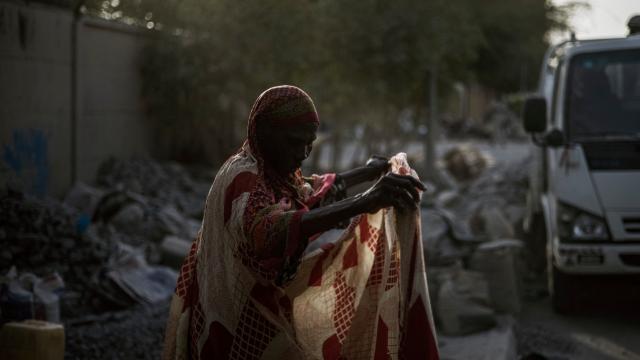Climate change and global inequality are deeply intertwined. The climate crisis disproportionately affects impoverished people who are more exposed to extreme events and risk losing everything when disaster strikes.
A new study published in Nature Communications on Tuesday shows why tackling both issues together is a must-do. Failure to do so could end up meaning policies to address climate change place undue burdens on the poor and push people further into poverty.
Right now, 1.89 billion people are living in extreme poverty, defined by the United Nations standard of living on less than $US1.90 ($2) per day. To see what effect international climate action could have on global poverty, the authors modelled the economic impacts of certain policy approaches. They based their experiments on the “shared socioeconomic pathways” or SSPs that climate modelers came up with in the early 2010s, which illustrate how global society, demographics, and economics might change over the next century.
The authors first modelled what course global inequality will take without any bold, new climate mitigation policies. The findings show that under SSP2, which refers to a “middle of the road” path where socioeconomic trends continue, 350 million people will still be living on less than $US1.90 ($2) a day by 2030. That means the world will miss the UN target of eradicating extreme poverty by 2030. And that’s likely to be a conservative estimate because it doesn’t account for the exacerbating effects of climate change or covid-19, both of which have put increased economic stress on struggling populations.
The authors then looked at how a strict carbon tax — one that would meet the Paris Agreement goal of keeping global warming within 1.5 degrees Celsius of pre-industrial temperatures — would play out in that scenario. They found that if everyone around the world had to pay the same price for emissions, an additional 50 million people will be living in extreme poverty by the end of the decade, bringing the total number to 400 million.
Then, the researchers looked at what would happen if all nations had access to the domestic revenue furnished from the price placed on carbon. They found that this could compensate for the “negative side effects of climate policy on poverty eradication,” and even reduce the number of people living in extreme poverty by 6 million. But even this progressive redistribution wouldn’t be sufficient to compensate for the policy side effects in most countries in the poorest parts of the world. In Sub-Saharan African nations, which is the region where extreme poverty is already most prevalent, countries would still be operating at a loss.
Thankfully, the researchers found that there’s a way to alleviate that: sharing the burden of carbon pricing equitably instead of evenly.
“To share the costs of climate change mitigation in a fair way, industrialized countries should compensate developing countries financially,” Nico Bauer, who works on climate models at the Potsdam Institute for Climate Impact Research and was a co-author of the study, said in a statement.
The authors looked at the effect of pairing a carbon tax with an international climate finance mechanism, by which revenues from carbon prices were collected globally and redistributed equitably. By transferring just 5% of the money that industrialized nations’ energy sectors had to pay to pollute, the authors found an international body could collect some $US100 ($128) billion per year to distribute to poor nations in addition to their domestic revenues. Doing so could lead to a net reduction of global poverty by around 45 million people in 2030.
“Poverty reduction hence needs to be included in the design of climate policies,” Bjoern Soergel, a researcher at the Potsdam Institute for Climate Impact Research and the lead author of the study, said in a statement.
That’s not a particularly radical climate policy. As the authors note, that level of climate finance “mirrors the commitment by industrialized countries” during negotiations around the 2015 Paris Climate Agreement. In a just world, industrialized nations could be expected to contribute even more. A recent report, for instance, suggested that the U.S. should contribute trillions to international climate financing since it is far and away the largest historical carbon emitter. But the strategy the authors modelled does illustrate how climate justice hinges on economic equity.
“Combining the national redistribution of emission pricing revenues with international financial transfers could thus provide an important entry point towards a fair and just climate policy in developing countries,” said Elmar Kriegler, head of the research department on “Transformation Pathways” at the Potsdam Institute for Climate Impact Research and a co-author of the study. “And it does not stop there: We need to look beyond 2030 and continue to work towards the goal of eradicating extreme poverty.”
